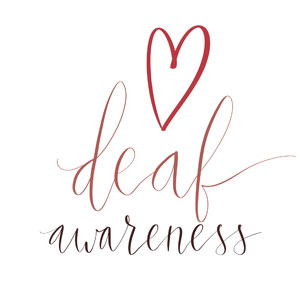LC Interpreting Services is now SignNexus!
Working with Sign Language Interpreters: The DOs and DON’Ts
 If you do not regularly work with sign language interpreters, you may not know that there are certain rules and expectations. To get the most out of having an ASL interpreter present, it’s a good idea to educate yourself about what exactly an interpreter does, and how they facilitate communication. To avoid complicating the conversation, making the interaction uncomfortable, or even offending the Deaf individual, here are some basic guidelines to follow:
If you do not regularly work with sign language interpreters, you may not know that there are certain rules and expectations. To get the most out of having an ASL interpreter present, it’s a good idea to educate yourself about what exactly an interpreter does, and how they facilitate communication. To avoid complicating the conversation, making the interaction uncomfortable, or even offending the Deaf individual, here are some basic guidelines to follow:
1.) DO: Research how to interact with a Deaf person; with and without an interpreter.
DON’T: Come to the meeting without any knowledge about deafness or Deaf communication.
2.) DO: Provide the interpreter as much information as possible, as far in advance as possible. This helps the interpreter be prepared and alert you to any potential ethical conflicts.
DON’T: Leave out important details about the assignment.
3.) DO: Use the interpreter to engage deaf individuals in conversation. Remember– interpreters are there to facilitate a deaf/hearing interaction.
DON’T: Talk to the interpreter like the deaf person isn’t there.
 3.) DO: Address the deaf person directly, using singular phrases. This is the person you are having a conversation with.
3.) DO: Address the deaf person directly, using singular phrases. This is the person you are having a conversation with.
DON’T: Talk to the deaf person in the third person. The interpreter is interpreting exactly what you say. Saying “tell him/her…” just confuses the message.
5.) DO: Ask the deaf person to explain how the interpreting process works.
DON’T: Ask the interpreter about their job.
6.) DO: Talk directly to the deaf person and make respectful eye contact.
DON’T: Stare at the interpreter while having a conversation with a deaf person.
7.) DO: Ask the deaf person how to sign something if you are curious.
DON’T: Say obscene things to watch how the interpreter signs it.
8.) DO: Make sure your message is clear so the interpreter can communicate it.
DON’T: Speak to the deaf person like they are uneducated.
9.) DO: Be friendly to the interpreter, and utilize his/her professional services to speak with the deaf individual.
DON’T: Try to befriend the interpreter.
10.) DO: Plan for the interpreter to sit or stand near the person who will be speaking the most.
DON’T: Try to sit the interpreter next to the deaf individual, or put the interpreter behind other people. Deaf people need to actually see everything the interpreter does.
 11.) DO: Speak as clearly as possible.
11.) DO: Speak as clearly as possible.
DON’T: Mumble, shout, or over-enunciate words thinking this will help the interpreter.
12.) DO: Ask the deaf person to explain something if you do not understand it.
DON’T: Ask the interpreter to explain what the deaf person means, cutting the deaf person out of the conversation.
13.) DO: Use sign language if you know ASL and it is appropriate.
DON’T: Start signing the alphabet, finger spelling, or signing random words when the interpreter is right there to facilitate communication.
14.) DO: Feel confident using an interpreter for private conversations.
DON’T: Worry that the interpreter can not be trusted. RID Certified interpreters are held to a professional code of conduct, which emphasizes ethics and client confidentiality.
15.) DO: Understand that although ASL interpreters aim to provide objective interpretations, they are Deaf culture allies and will advocate for the deaf client as needed.
DON’T: Ask interpreters for their personal opinions, ask them not to interpret something you said, or expect the interpreter to overlook any acts they view as oppressive toward the deaf consumer.
16.) DO: Be present and pay attention to the deaf person with whom you are communicating.
DON’T: Look at other people, at your phone, or out the window during conversation.
 17.) DO: Hire a professional, competent interpreter who has the appropriate credentials and background to facilitate effective communication. Look for Deaf or sign language interpreter owned agencies that specialize in deaf communication.
17.) DO: Hire a professional, competent interpreter who has the appropriate credentials and background to facilitate effective communication. Look for Deaf or sign language interpreter owned agencies that specialize in deaf communication.
DON’T: Hire any interpreter you can find without doing any research on the agency that they work for.
18.) DO: Take an interest in Deaf culture and deafness. There is a wealth of information available on this topic– read some of the many books or articles that are available.
DON’T: Simply expect deaf people or sign language interpreters will take time out of their busy day to provide basic cultural education.
19.) DO: Know it may be your legal responsibility to cover the costs, as outlined by the Americans with Disabilities Act
DON’T: Expect the Deaf person to pay for the interpreter out of pocket
20.) DO: Learn what types of situations ASL interpreters are required for, and how to hire a high quality interpreter.
DON’T: Deny deaf people equal access to communication in your business, organization, or establishment.








Is there any recourse if a company’s (major bank)employees continually ignore the etiquette of using a translator.
Eg asks if they can talk to translator or solicites lay interpreter into helping make HH persons decisions.
I have very limited hearing where I know of only one person I can most of time (but not always) hear. I have been using him as a lay interpreter. Though H. bank has repeatedly been advised of hearing problem and that there is lay interpreter to help HH person hear/understand. They continually try to talk to him and solicit his help in decision making.
Even recently after I wrote to CEO of bank re: thus among other issues, the female consumer advocate returning call never paused, or gave time for lay interpreter to voice unheard conversation.
I am aware that I could ask that they provide licensed interpreter, but there is no guarantee I would be able to hear voice of interpreter.
Additionally, I have a very limit sign language base.